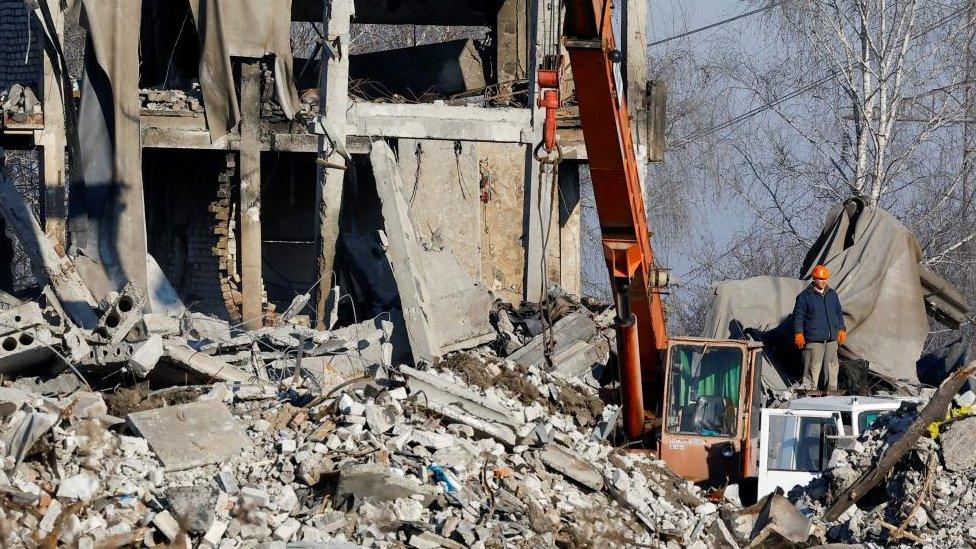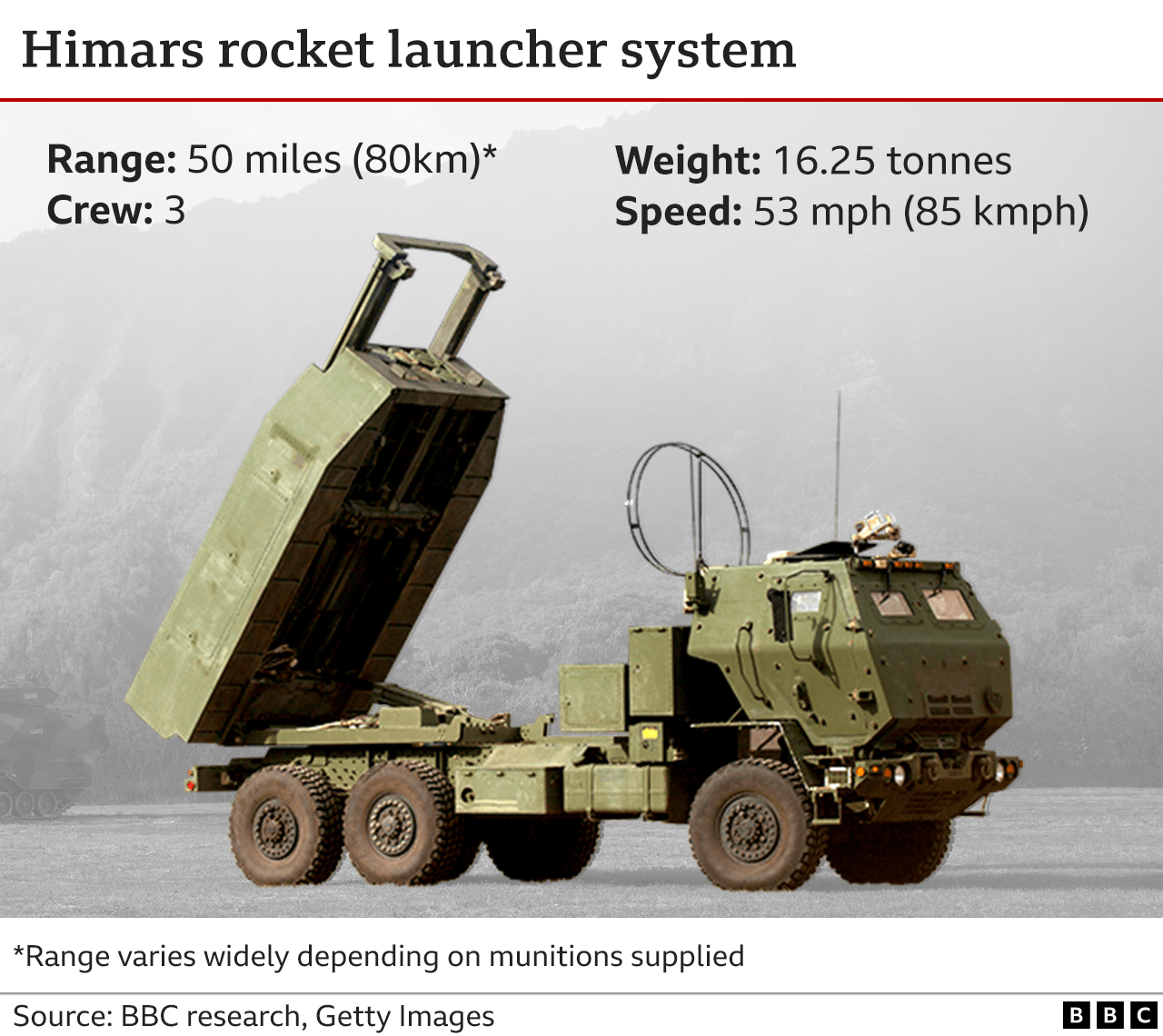Makiivka attack: Could mobile phones have revealed Russian location?
- Published

The building housing the conscripts was all but flattened in the Ukrainian attack
The Russian defence ministry says mobile phones used by their own forces allowed Ukraine to destroy a building, killing dozens of conscripts in the eastern city of Makiivka.
"This factor allowed the enemy to locate and determine the co-ordinates of the military personnel for a missile strike," it said in a statement.
Ukraine said around 400 Russian military personnel were killed in the attack on New Year's Day. The Russian authorities said 89 people died.
Could mobile phones have located the soldiers?
There have been widespread reports in Western media since the beginning of the war about both sides' abilities to intercept and geo-locate phone calls for targeting purposes.
In March last year, weeks after the start of the invasion, the New York Times quoted an unnamed American official, external saying the Ukrainians had been able to intercept the call of a Russian general, geo-locate it, and kill him and his staff.
Also in March, a Sky News piece highlighted the Russian Leer-3 system which flies drones above the target area, external, which can mimic mobile phone receiver masts, and trick phones to communicate with them.
These drones can then relay this information to a base station in nearby safe territory, from where the positions of the phones can then be located.
But while it's widely believed that both sides have the ability to track mobile phones, some commentators have expressed doubts about this explanation for the Makiivka attack.
The BBC Russian service has spoken before to newly mobilised conscripts, who say that their phones are taken away as soon as they arrive at their units.
But at the same time, there have also been reports of Russians using mobile phones at the front because of the lack of other equipment. That might explain why some conscripts could have retained theirs.


Russian authorities appear to blame their soldiers' own use of mobile phones. But if true, that begs the question why was discipline so lax?
Most militaries enforce the importance of operational security and personal security while on operations - including limiting the use of mobile phones.
There appears to have been other lapses too. A large concentration of troops in one building, where ammunition was also stored, would have made an obvious target.
Movements and patterns of life could have been observed by satellite or drones. While long-range rockets like Himars have helped Ukraine, it's the intelligence behind those strikes that have made the real difference.
The attack on Makiivka shows that Russia is still struggling to learn from past mistakes. This is not the first time the Ukrainians have targeted a military barracks.
But one thing has changed. Justin Crump, head of the security consultancy Sibyline, says the criticism within Russia shows there's now less tolerance of such incompetence.
However, rather than focussing on the loss of life, many critics in Russia see it as a justification for escalation.

What was destroyed in the attack?

The Russian ministry of defence says, external the Ukrainians hit a temporary military headquarters in Makiivka.
One video of the aftermath shows a building totally destroyed by the attack. Commenters on social media quickly identified it as Vocational School No 19.
Searching for that name online threw up a photograph that we compared with a satellite image of the building at the attack site (prior to its destruction) to find a match.

No evidence is available pointing to large amounts of ammunition having been stored in the building.
But in a tweet the UK ministry of defence said, external this scenario was possible "given the extent of the damage" to the site.
US missiles were used, says Russia
The Russian authorities say that a Himars missile system, provided to Ukraine by the United States, was used in the attack.
Shortly after the strike, the Ukrainian defence ministry published a tweet showing a missile launch, with the single word of text: "Surprise"., external
Himars - the M142 High Mobility Artillery Rocket System - is a missile launcher mounted on a five-tonne truck which can fire six guided missiles in quick succession.
The missiles supplied to Ukraine have a range of up to 50 miles (80 km), which is over twice the range of the howitzers which the US has previously given to Ukraine.
The US has committed to supplying Ukraine with 38 of these systems, external, and it's been reported that 20 have been delivered since the start of the conflict.

Related topics
- Published4 January 2023

- Published3 January 2023

- Published27 December 2022
